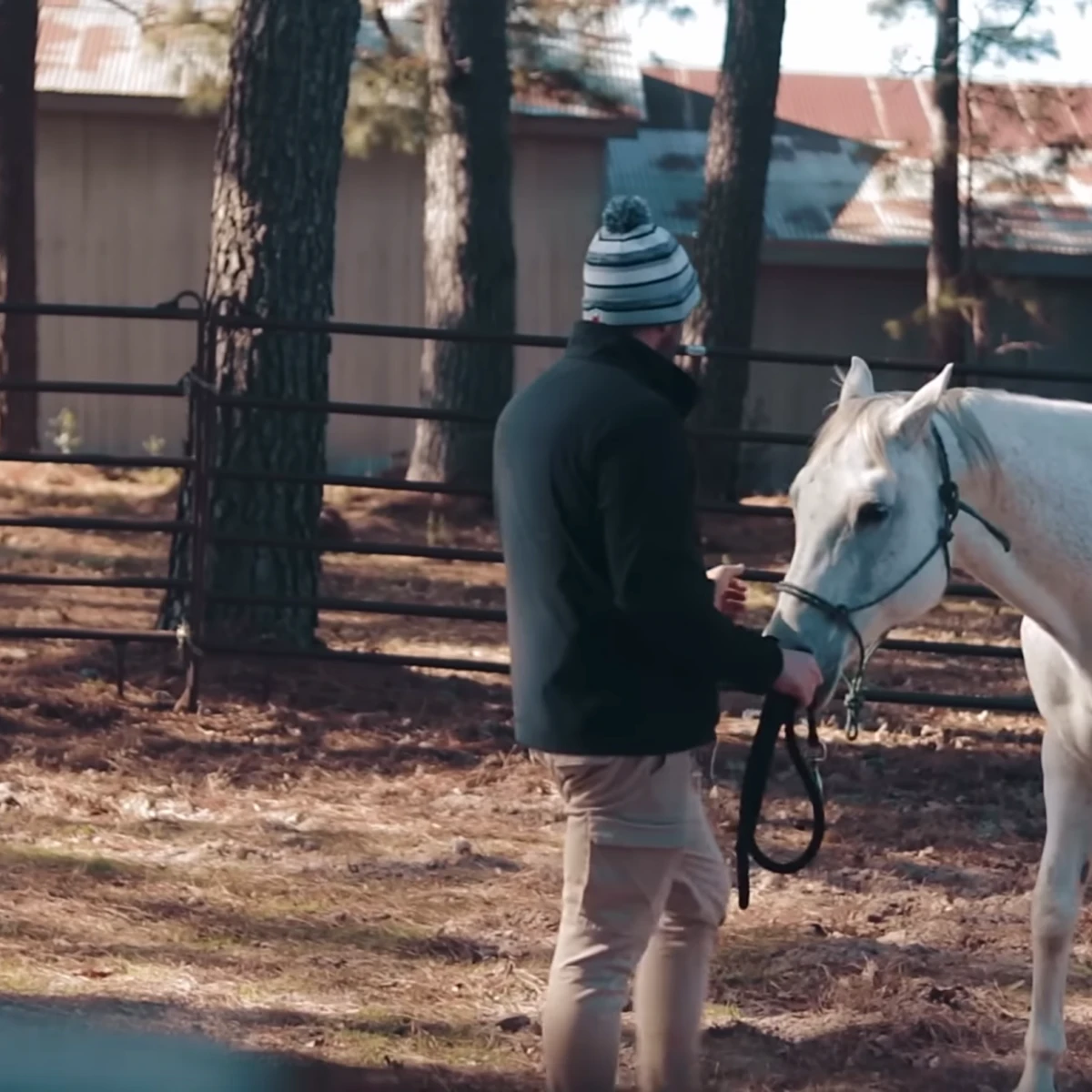We work with insurances. Verify yours now
Psychodrama Group Therapy for Addiction at The Last Resort in Austin, TX
Psychodrama is a treatment modality that draws upon group dynamics, role-playing, and theatricality to give you a better understanding of your past experiences.[1]
The Last Resort in Austin provides the Texas community with the very best in evidence-based, holistic care – and our psychodrama for addiction can help you to develop new insights about your struggles and become the person you were always meant to be. Partner with us and start your recovery today.


Psychodrama therapy is a type of therapy in which people explore and address personal issues through role-playing and dramatic expression. Developed by J.L. Moreno in the early 20th century, psychodrama integrates elements of theater, group dynamics, and psychoanalysis.[2] Guided by a trained therapist, participants enact scenes from their lives or hypothetical situations to process emotions and practice new behaviors in a supportive environment.
Psychodrama therapy typically takes place in a controlled setting, such as a therapist’s office, clinic, or specialized treatment facility. It is most often utilized in group therapy or group psychotherapy sessions. Licensed clinicians, specifically trained in psychodrama techniques, facilitate sessions to ensure a safe and constructive experience for participants. These clinicians often have backgrounds in psychology, counseling, social work, or related fields, and they adhere to ethical guidelines and professional standards to provide effective therapeutic interventions.
The Last Resort incorporates psychodrama therapy as part of our comprehensive approach to addiction recovery. By integrating psychodrama techniques into our programs, we offer our clients a unique opportunity to explore and address underlying emotional issues that contribute to addiction. Through role-playing and group interaction, you can gain deeper self-awareness and practice healthier coping strategies in our supportive community.

Psychodrama therapy for addiction (and co-occurring mental health disorders) utilizes role-playing to explore and address unresolved issues, emotions, and interpersonal dynamics:[3]
Allows participants to express and release deep-seated emotions and unresolved conflicts in a safe environment, promoting emotional relief and clarity.
Participants take on different roles, including their own and others, fostering empathy, challenging rigid thinking patterns, and exploring alternative perspectives on personal challenges.
Engaging in improvisational exercises encourages participants to tap into their creativity, intuition, and authentic self-expression, facilitating experimentation with new behaviors and responses.
The therapeutic group serves as a supportive environment for interpersonal learning, feedback, and social skill development. Shared experiences within the group contribute to a sense of community, fostering connections and mutual support among participants.
Psychodrama therapy has shown promising results in enhancing the recovery journey for those struggling with addiction. By utilizing structured improvisation and role-playing techniques, psychodrama helps members of the group confront and modify old behaviors while practicing new ones.
Research indicates that psychodrama techniques effectively reduce anxiety levels overall and that their techniques are designed to boost motivation and aid in relapse prevention.[4] Furthermore, studies have shown significant reductions in PTSD and depression symptoms among participants in inpatient substance abuse treatment programs, both of which can often co-occur with drug and alcohol issues.
In essence, psychodrama sessions and other creative arts therapies offer a structured yet unique approach to addiction recovery. They leverage the power of storytelling and dramatization to promote emotional well-being, cognitive restructuring, and relapse prevention.
By integrating these techniques into treatment, The Last Resort can provide you with powerful tools to navigate and transform your recovery journey.

Participating in psychodrama group therapy offers a unique and engaging journey of self-discovery and emotional exploration. From a participant’s perspective, the experience is both dynamic and deeply personal. You can expect to actively engage in role-playing and dramatic improvisation, with this hands-on approach allowing you to step into various roles – reliving past experiences, exploring current challenges, or envisioning future scenarios.
The therapy takes place in a supportive and safe environment facilitated by a trained therapist. You’ll mostly participate in a group setting with others who are also navigating their paths to healing. This atmosphere encourages openness, vulnerability, and mutual support among participants, creating a space where you can explore and express yourself without judgment.
The group dynamic enhances the therapeutic process and provides opportunities for shared insights alongside peers who understand and empathize with your experiences.
Emotionally, psychodrama therapy facilitates catharsis, a process of emotional release and healing through the acting out of scenes. Through the expressive nature of role-playing and dramatic enactment, you’ll have the opportunity to confront and process deep-seated emotions, unresolved conflicts, and past traumas, which can lead to a profound sense of relief and clarity.
You’ll reflect on and discuss the insights gained from each session with the therapist and group members throughout the therapy. This reflective process helps you integrate newfound awareness into your daily life, offering practical strategies and perspectives that support ongoing personal growth and recovery.

Psychodrama therapy is a cornerstone of The Last Resort’s addiction recovery approach, offering a dynamic and transformative experience. Through structured psychodramatic role-playing and guided improvisation, participants explore emotions, confront underlying issues, and practice new behaviors in our supportive community.
Led by our trained and experienced therapists, sessions foster self-awareness and personal growth in the recovery process. Contact us today to learn more about how psychodrama therapy can support your journey to recovery.
Psychodrama therapy for addiction is suitable for individuals who are seeking a holistic approach to recovery that integrates emotional exploration, role-playing, and group dynamics. It is beneficial for those who are motivated to address underlying issues contributing to their addiction and are open to exploring their emotions and behaviors in a supportive therapeutic setting.
Yes, psychodrama therapy has shown effectiveness in treating various types of addiction, including substance abuse disorders and behavioral addictions. By engaging in role-playing and dramatic enactment, participants can confront and process deep-seated emotions, traumas, and relational patterns that contribute to addictive behaviors. This therapeutic approach enhances emotional healing and supports individuals in developing new coping strategies and behaviors conducive to recovery.
You can consider psychodrama therapy if you resonate with experiential forms of therapy that involve active participation, creative expression, and exploration of personal narratives. It is particularly suitable if you are interested in addressing emotional issues, exploring interpersonal dynamics, and seeking a therapeutic approach that complements traditional talk therapy. Consulting with a qualified psychodrama therapist can also help assess whether this approach aligns with your recovery goals.
While psychodrama therapy is generally safe and beneficial for addiction recovery, potential risks include emotional intensity during sessions, temporary discomfort when confronting difficult emotions or memories, and the need for adequate emotional support during and after sessions. Working with a trained and experienced therapist who can create a safe therapeutic environment and provide appropriate guidance throughout the process is essential.
Before attending a psychodrama therapy session for addiction, it can be helpful to reflect on your motivations for seeking treatment, identify specific issues or emotions you wish to explore, and mentally prepare to engage in role-playing and creative expression. It’s important to approach the session with an open mind and willingness to participate actively in the therapeutic process. Additionally, discussing any concerns or questions with your therapist beforehand can help alleviate anxiety and enhance your readiness for the session.
[1] Orkibi, H., & Feniger-Schaal, R. (2019). Integrative systematic review of psychodrama psychotherapy research: Trends and methodological implications. PLOS ONE, 14(2), e0212575. https://doi.org/10.1371/journal.pone.0212575 on June 20, 2024
[2] Cruz, A., Sales, C. M. D., Alves, P., & Moita, G. (2018, June 29). The core techniques of Morenian Psychodrama: A systematic review of literature. Frontiers. https://www.frontiersin.org/journals/psychology/articles/10.3389/fpsyg.2018.01263/full on June 20, 2024
[3] López-González, M. A., Morales-Landazábal, P., & Topa, G. (2021). Psychodrama Group Therapy for Social Issues: A Systematic Review of Controlled Clinical Trials. International Journal of Environmental Research and Public Health, 18(9), 4442. https://doi.org/10.3390/ijerph18094442 on June 20, 2024
[4] Toker Ugurlu, Tugce, Kalkan Oguzhanoglu, Nalan, & Atesci, Figen. (2020). Effect of Psychodrama Group Therapy on Remission and Relapse in Opioid Dependence. Archives of Neuropsychiatry. https://doi.org/10.29399/npa.25001 on June 20, 2024
[5] Giacomucci, Scott, et. al. (2022, October 12). A mixed-methods study on psychodrama treatment for PTSD and depression in inpatient substance use treatment: A comparison of outcomes pre-pandemic and during covid-19. The Arts in Psychotherapy. https://www.sciencedirect.com/science/article/pii/S0197455622000922#sec0120 on June 20, 2024
Our admission specialists are ready to talk with you 24/7 about starting the journey. We always treat each caller with the utmost respect, detailing your treatment options and respecting your confidentiality.
Based on your assessment, we’ll work together to create a customized treatment plan that addresses your needs, ensuring you have the support and resources necessary to achieve your goals.
The Last Resort is in-network with most major insurance companies. Fill out the form below to verify your healthcare coverage within the hour.
We’ll welcome you to our campus and start laying the groundwork for a successful, long-term recovery.